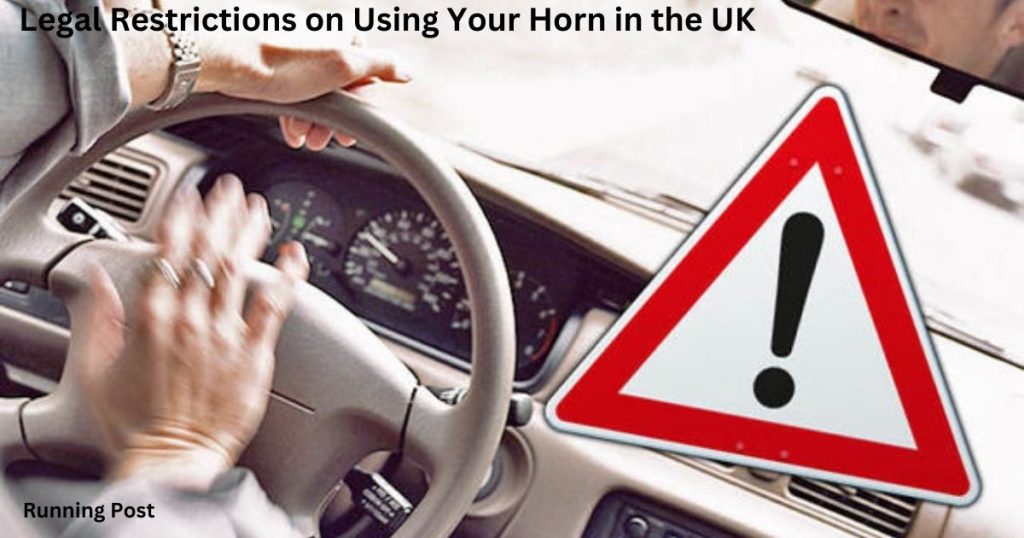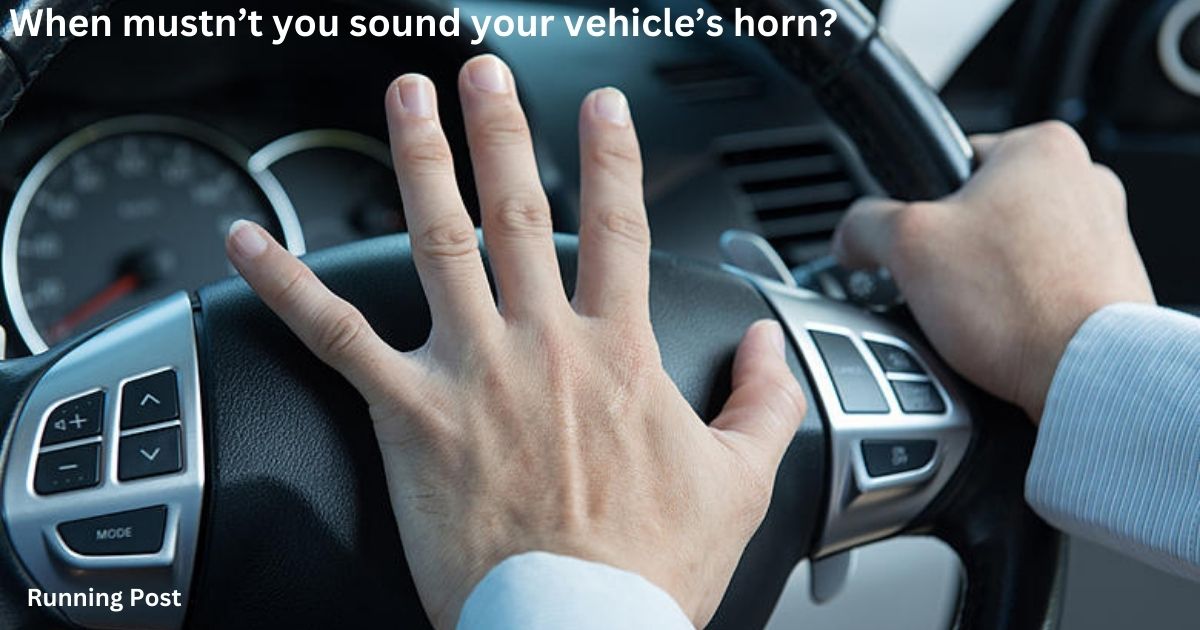| A: Between 10.00 pm and 6.00 am in a built-up area | B: Between 11.30 pm and 7.00 am in a built-up area | C: Between 11.30 pm and 6.00 am on any road | D: At any time in a built-up area |
Understand The When Mustn’t You Sound Your Vehicle’s Horn?
Introduction
Understanding when not to use your vehicle’s horn is crucial for maintaining road safety and complying with legal regulations. The vehicle horn is a vital tool for alerting other drivers to your presence, especially in critical situations. However, there are specific times and conditions when using your horn can be inappropriate or even illegal. This knowledge helps prevent unnecessary noise pollution and ensures that drivers use their horns responsibly.
In built-up areas, excessive horn use can be disruptive, especially during late hours when residents are likely to be sleeping. Regulations have been established to balance the need for safety with the need for peace in residential areas. By following these guidelines, drivers contribute to a more harmonious driving environment and avoid potential legal issues.
This article will delve into the specific regulations about horn use in the UK, including the times and areas where horn use is restricted, legal requirements for having a functioning horn, troubleshooting common issues, and noise regulations. Understanding these aspects is essential for every driver to ensure they are using their vehicle horn correctly and legally.
Legal Restrictions on Using Your Horn in the UK

General Restrictions
In the UK, vehicle horn use is regulated to prevent unnecessary noise pollution and maintain public peace. According to the Highway Code, drivers must not sound their horns between 11.30 pm and 7.00 am in built-up areas unless it is to warn of imminent danger. This restriction is in place to avoid disturbing residents during late-night hours and early mornings when they are likely to be sleeping.
The regulations apply to all drivers, whether in residential neighborhoods or commercial areas. Adhering to these restrictions helps ensure that the use of horns is limited to essential situations, such as avoiding collisions or alerting other drivers to dangerous conditions. Violating these regulations can result in fines or other legal consequences.
Specific Times and Areas
When Can’t You Sound Your Horn in the UK?
In the UK, there are specific times and areas where sounding your vehicle’s horn is prohibited. The key restriction is between 11.30 pm and 7.00 am in built-up areas. This regulation is designed to minimize noise pollution during hours when people are generally resting or sleeping. Built-up areas include urban and suburban locations with a higher density of residential properties.
During these hours, using your horn is only permitted in situations where it is necessary to warn of imminent danger. For instance, if a driver is about to cause an accident due to a lack of awareness, sounding the horn might be justified. However, using the horn for non-emergency reasons, such as expressing frustration or impatience, is not allowed.
Legal Requirements for Vehicle Horns in the UK
Driving Without a Horn
Is It Illegal to Drive a Car Without a Horn in the UK?
Yes, it is illegal to drive a car without a functioning horn in the UK. The horn is a crucial safety feature required by law, and it must be in good working order to ensure that drivers can communicate effectively in emergency situations. The Road Vehicles (Construction and Use) Regulations 1986 stipulate that all vehicles must be equipped with a horn that is capable of producing a sound to alert other road users.
If your horn is not working, you are required to have it repaired or replaced promptly. Driving without a functioning horn can lead to penalties, as it is considered a breach of vehicle safety regulations. It is important to regularly check and maintain your horn to ensure it remains operational.
You Also Like It:
When may you drive over a pavement?
What’s the national speed limit for a car on a single carriageway?
By how much can stopping distances increase in icy conditions?
Troubleshooting Horn Issues
Common Problems
Why Is My Car Horn Not Working in the UK?
There are several reasons why a car horn might not be working properly. Common issues include electrical problems, a blown fuse, or mechanical failures. Electrical issues can occur due to damaged wiring or loose connections. If the horn doesn’t sound when you press the button, it’s essential to check these connections and ensure there are no breaks in the wiring.
Another common problem is a blown fuse. The fuse responsible for the horn is usually located in the fuse box, and if it is blown, the horn will not function. Replacing the fuse with one of the correct rating can resolve this issue. Mechanical failures, such as a faulty horn itself, can also prevent the horn from working. In such cases, replacing the horn unit may be necessary.
Horn Volume Regulations
Legal Noise Levels
How Loud Can Your Car Horn Be in the UK?
In the UK, there are regulations concerning the volume of vehicle horns to prevent excessive noise pollution. The horn must be audible, but it should not be so loud that it causes disturbance or discomfort to others. There are specific noise level limits set by regulations, but exact figures can vary depending on the vehicle type and its intended use.
The primary goal of these regulations is to ensure that horns are used as a warning device rather than a tool for expressing frustration or aggression. Excessively loud horns can lead to fines or legal issues, as they can contribute to noise pollution and disrupt the peace.
Conclusion About When mustn’t you sound your vehicle’s horn?
Understanding when not to use your vehicle’s horn and adhering to legal regulations is crucial for maintaining a peaceful driving environment and ensuring road safety. By following the restrictions on horn use, ensuring your horn is in working order, and adhering to noise level regulations, you contribute to a more considerate and regulated road system. Always remember to use your horn responsibly and within the bounds of the law to avoid unnecessary disturbances and legal trouble.
You Also Like It:
How do smart motorways prevent traffic bunching?
When may you use hazard warning lights while you’re driving?
Releated Posts
MAB Instructor Certification: Your Gateway to Professional Crisis Management Leadership
In today’s fast-evolving professional environments—especially in healthcare, mental health, education, and corrections—conflict and aggression can arise without warning.…
Freewayget.com: Your Ultimate Platform for Deals, Discounts, and Digital Products
Introduction to Freewayget.com In today’s fast-paced digital world, finding reliable platforms that offer authentic discounts, deals, and digital…
Affordable & Fast Embroidery Digitizing Services in Your Area
Embroidery digitizing services provide corporations, designers, and people with brilliant embroidery-equipped designs by means of changing art work…
Introduction to hdhub4u nit
In this article, we will delve into the details of hdhub4u nit, exploring its features, benefits, and why…

















